Threads of Expression
Antonio Contreras Aviance—Filmmaker, Artist, Style Collector, and Activist—on Fashion, Storytelling, and the Soul of San Francisco.
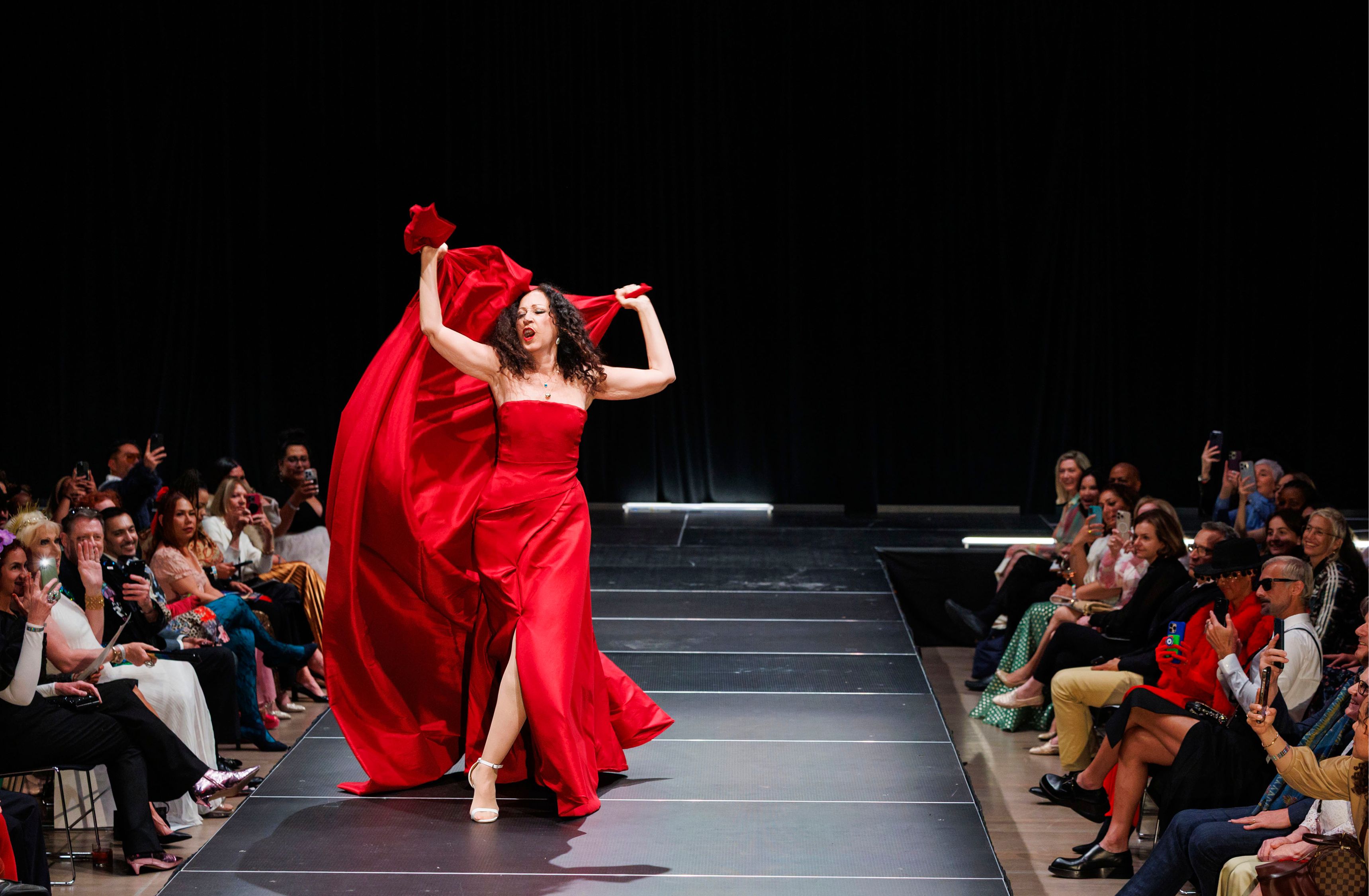
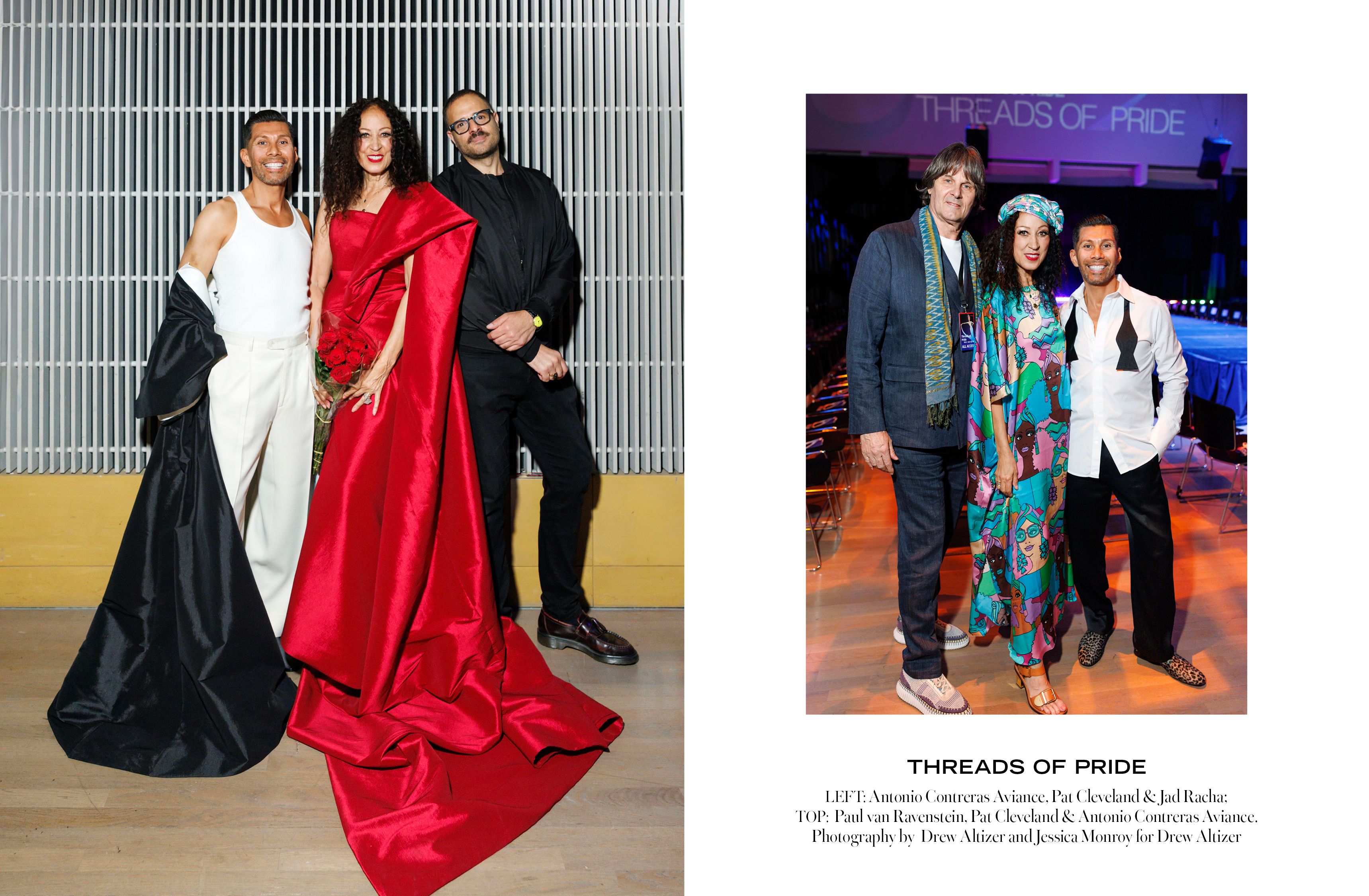
In his atelier, surrounded by watercolor palettes and vintage Gaultier, Antonio Contreras Aviance moves between canvases with the practiced elegance of someone who understands that art, fashion, and activism are inextricably linked. His creative world was forged in the golden age of Mexican cinema, shaped by the cosmopolitan circle that gathered around María Félix—a world where Salvador Dalí, Diego Rivera, and Frida Kahlo moved through the same rarified spaces.
"I was one of the last students to study under Edgar Del Valle, one of Frida Kahlo's last living pupils," Antonio reflects. "But I was drawn more to Frida as a personality than as an artist—to the mythology of that entire circle." That mythology would prove formative: the idea that creativity could be both deeply personal and culturally transformative.
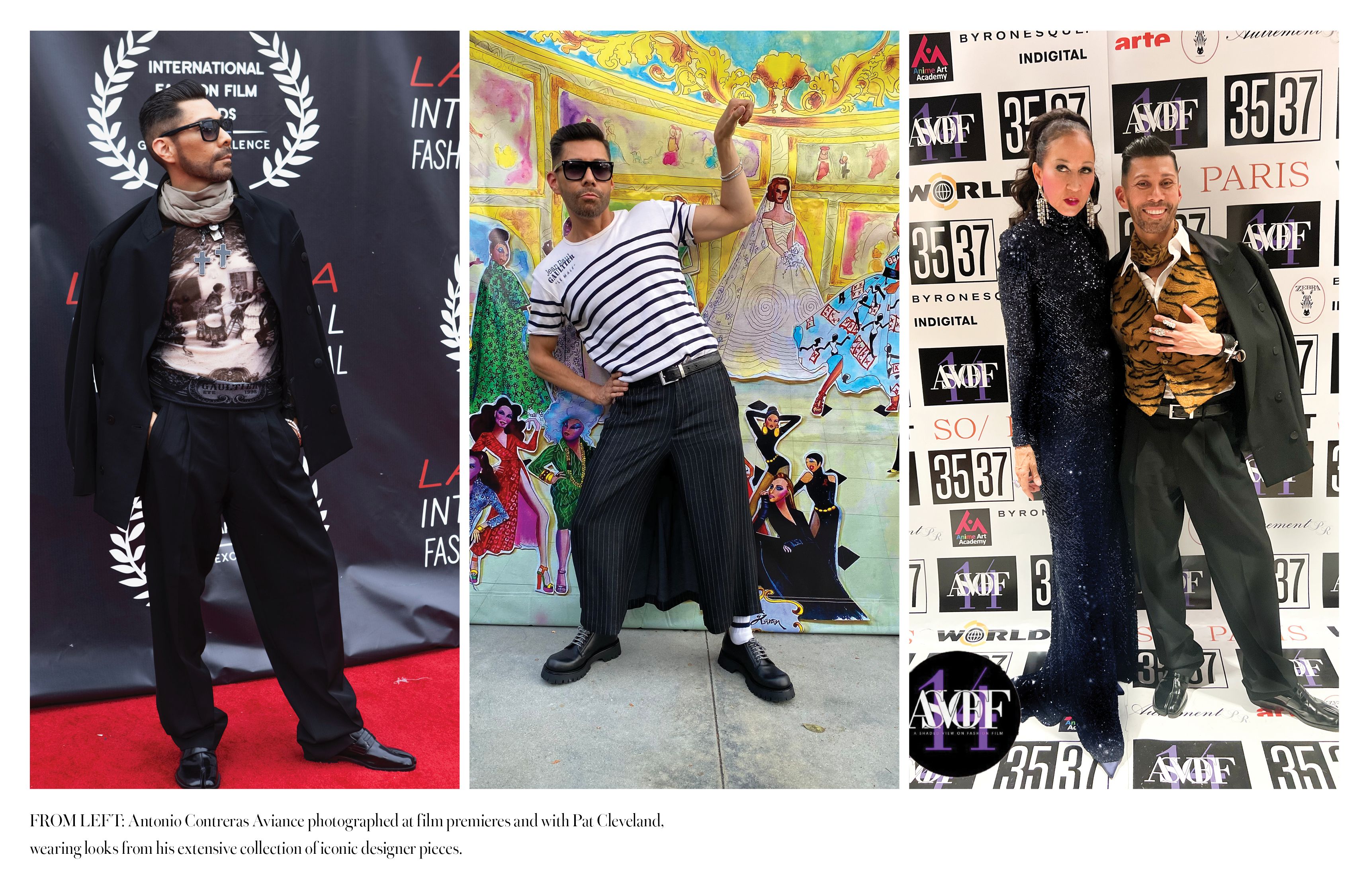
Antonio's transition from Mexico City to San Francisco reads like cultural destiny. A pivotal night at Club Dv8 on Natoma Street revealed a city where "there were people who thought like me, looked like me, acted like me." But his arrival in the early '90s coincided with San Francisco's dual identity: a haven of queer liberation and creativity shadowed by the devastating AIDS crisis.
"My mentor, José García, died of AIDS complications," he says. "That experience defined my approach to activism—not holding fists in the air, but infiltrating systems from within to create lasting change.
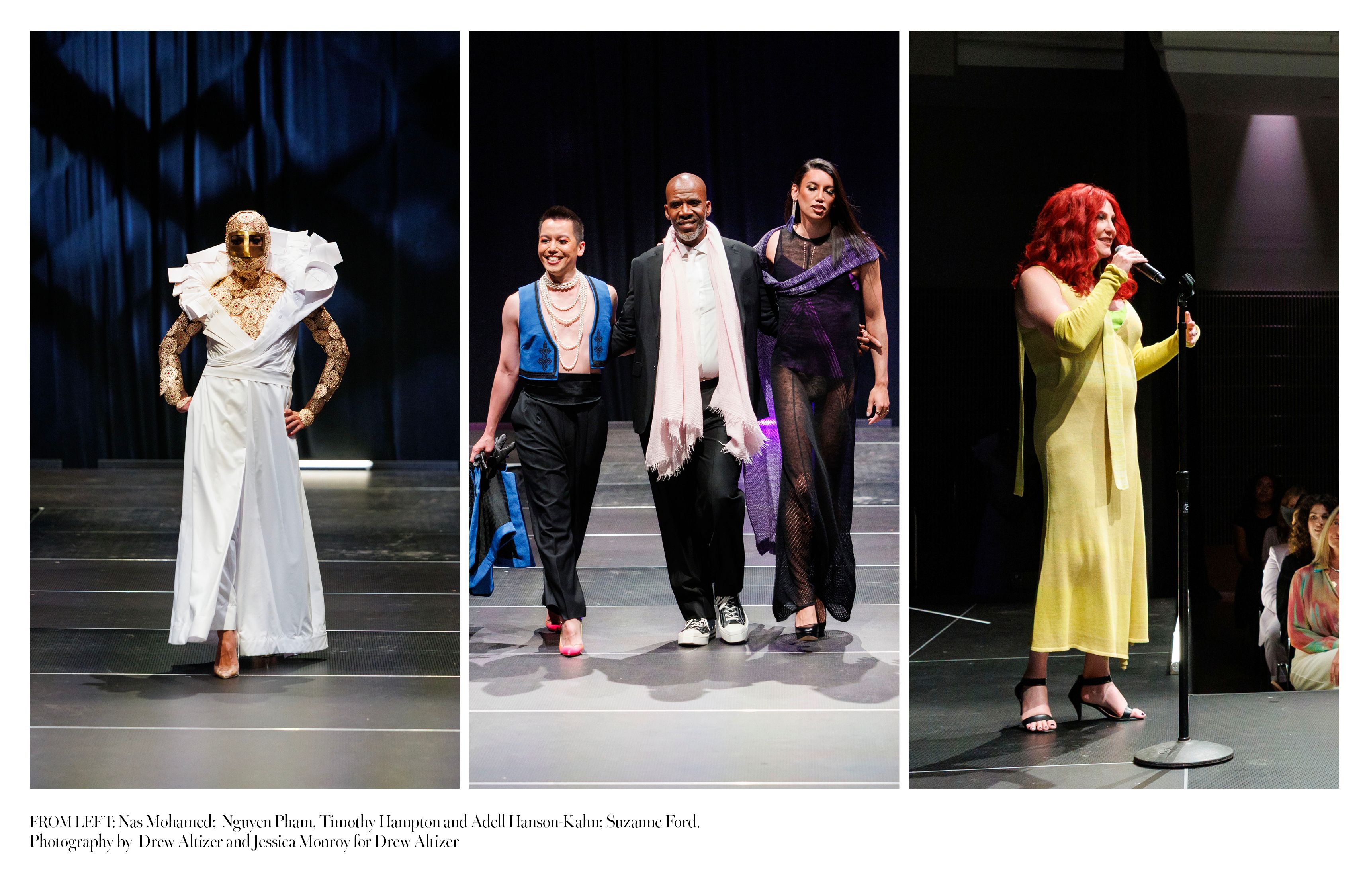
"This philosophy reached its pinnacle in 2025 with his role as Artistic Director for Threads of Pride, the groundbreaking fashion spectacular conceived by Dr. Nas Mohamed that transformed Yerba Buena Center for the Arts into a fashion runway under the theme "Queer Joy is Resistance." The June 24 event merged high fashion with grassroots activism, featuring LGBTQ+ nonprofit leaders walking the runway in custom couture by John Varvatos, Jad Racha, Vasily Vein, Emma Claire Latham, and Kenlynn Wilson.
"Fashion is the thread that holds us together in our community."
"Fashion is the thread that holds us together in our community," Antonio declared at the event. "Tonight, every stitch celebrated the audacity to exist—and the power of queer joy to disrupt oppression."
The show's extraordinary success exceeded all expectations, drawing together San Francisco's most diverse cross-section—tech luminaries seated beside drag performers, socialites in haute couture alongside artists in self-crafted creations. With stellar choreography by Ryan Davis, live compositions by Jason Brock, and a dynamic soundscape by DJ Sergio Fedasz, the evening transcended fashion to become performance art. Each garment told stories of resilience and defiance, transforming personal narratives into wearable activism.
The crescendo came when legendary model Pat Cleveland took to the runway in honor of friends lost to AIDS—a moment attendees described as "nothing short of iconic." Her presence served as both homage and validation of San Francisco's continued cultural influence, with the event garnering coverage in Vogue and cementing its impact far beyond the Bay Area.
"When I acquire a garment, I'm collecting history. I'm collecting context."
Antonio's entry into filmmaking emerged from his passion for collecting—not just garments, but cultural memory itself. When an online publication discovered his archive of designer pieces dating back to 1989, the resulting short film "Antonio's Closet" won the Founder's Award at Miami's International Fashion Film Festival.
"When I acquire a garment, I'm collecting history. I'm collecting context," he explains, describing pieces by Gaultier, Galliano, Margiela, Montana, Moschino, and Mugler that populate his carefully curated collection. His latest obsession: Willy Chavarria, whose work he describes as making Latino identity in fashion "chic in ways others have attempted but never achieved.
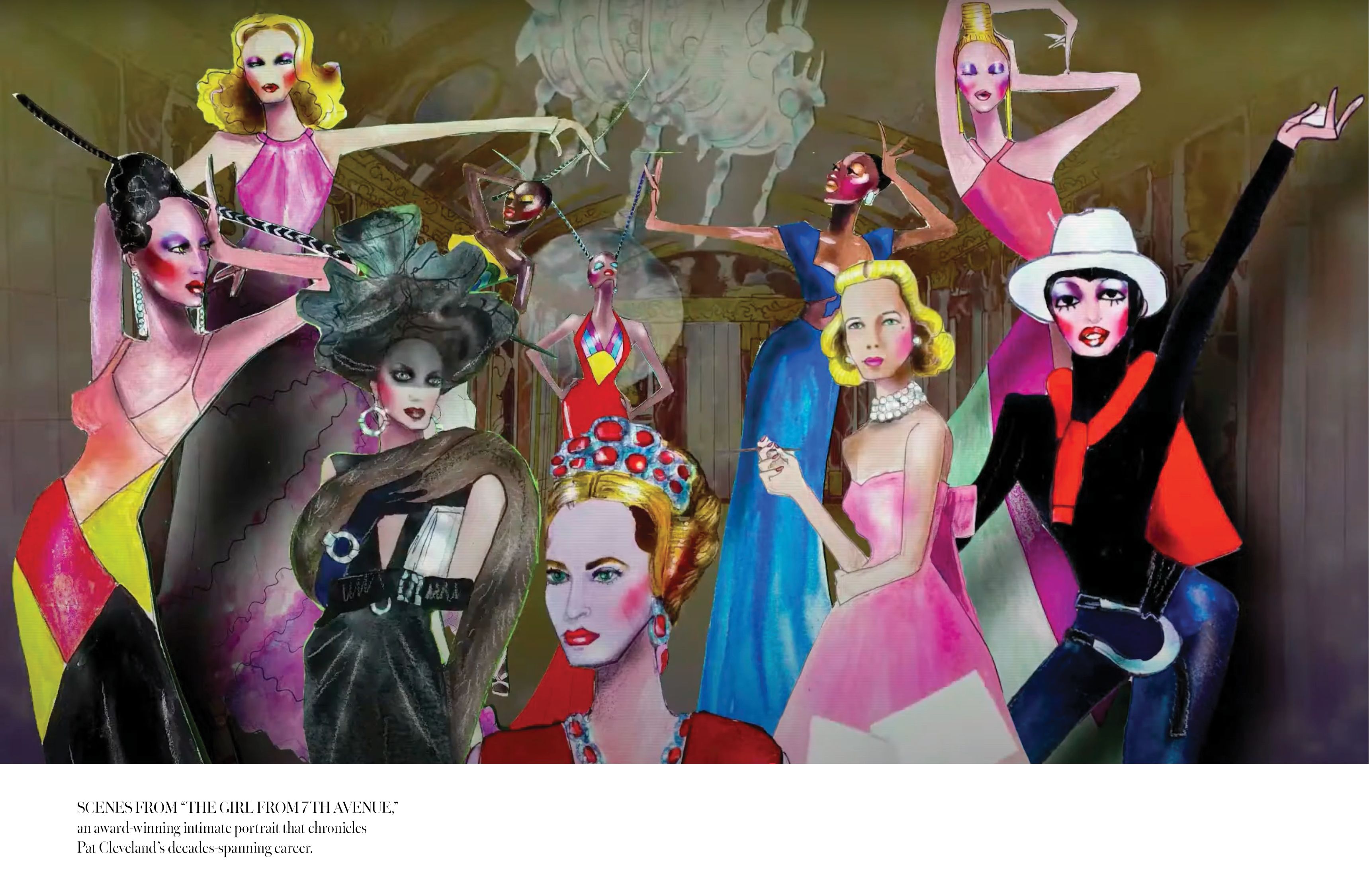
"This collecting philosophy evolved into his watercolor animations—labor-intensive films requiring hundreds of original paintings. "Exubérance," chronicling the life of gender-fluid model Tanel Bedrossiantz, Jean Paul Gaultier's muse, comprised 500 watercolors. Its success led to his collaboration with Pat Cleveland for "The Girl from 7th Avenue," an award-winning intimate portrait requiring over 2,500 painted frames that chronicles Cleveland's decades-spanning career and friendships with fashion legends like Karl Lagerfeld, Yves Saint Laurent, and Halston. The film captures pivotal moments, including her participation in the legendary 1973 Battle of Versailles fashion show, but maintains a whimsical, painterly tone rather than an archival approach.
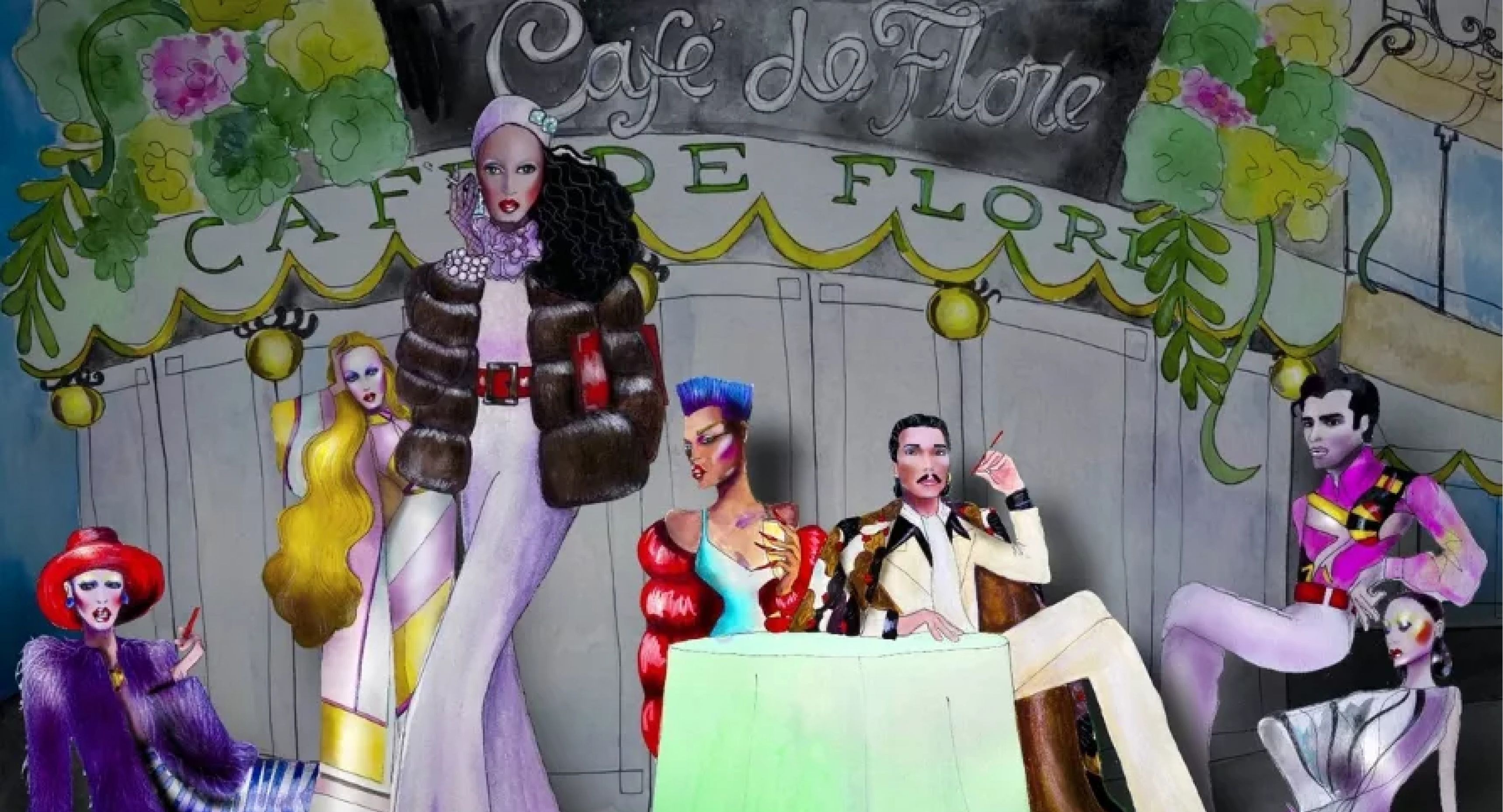
Working with Pat Cleveland provided access to fashion's most exclusive archives—both material and personal. "Pat doesn't like being called a supermodel," Antonio notes. "She prefers 'superstar,' Andy Warhol's term. She comes from the Factory, from that world of Candy Darling and Divine.
"Their ongoing collaboration transcends traditional documentary filmmaking, with future projects kept purposefully under wraps. "Working with Pat opened doors to a world that no longer exists," he reflects, describing encounters with the ghosts of Studio 54, the Battle of Versailles, and fashion's most mythic moments.
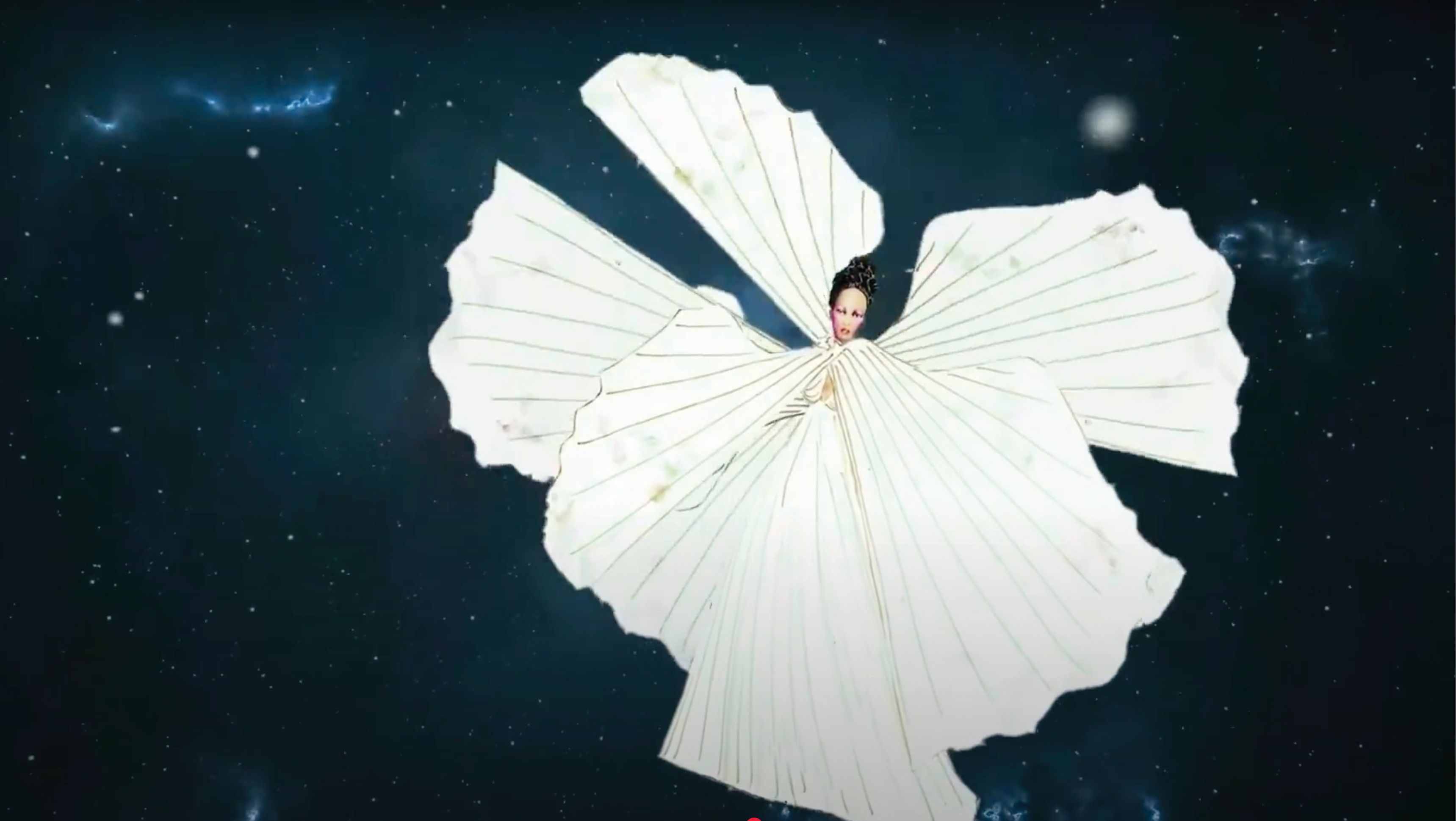
When Pat walked the runway at Threads of Pride—in honor of friends lost to AIDS—it represented both the past and future of San Francisco's cultural influence. Her presence validated the city's continued relevance on fashion's global stage, with the event garnering coverage in Vogue and cementing its cultural impact beyond the Bay Area.
Threads of Pride served as both commemoration and battle cry, proving fashion's power as a catalyst for education, empathy, and tangible change.
Antonio's screening at The Roxie Theater this fall will feature candid conversations with Suzanne Ford, San Francisco Pride's first openly transgender executive director, and Nguyen Pham, its first Vietnamese-American president. The venue choice reflects his commitment to San Francisco's cultural institutions: "The Roxie is the oldest independent theater in the city—that matters.
"For next year's Threads of Pride, he insists on complete reinvention. "I believe in not repeating yourself. It has to be entirely different." This philosophy extends beyond fashion shows to his entire creative practice—a commitment to evolution that mirrors the city itself.
San Francisco, Antonio argues, remains one of only a few global cities that truly celebrate difference. "We had the Compton Cafeteria riots three years before Stonewall," he reminds us, positioning the city as a pioneer in both resistance and acceptance.
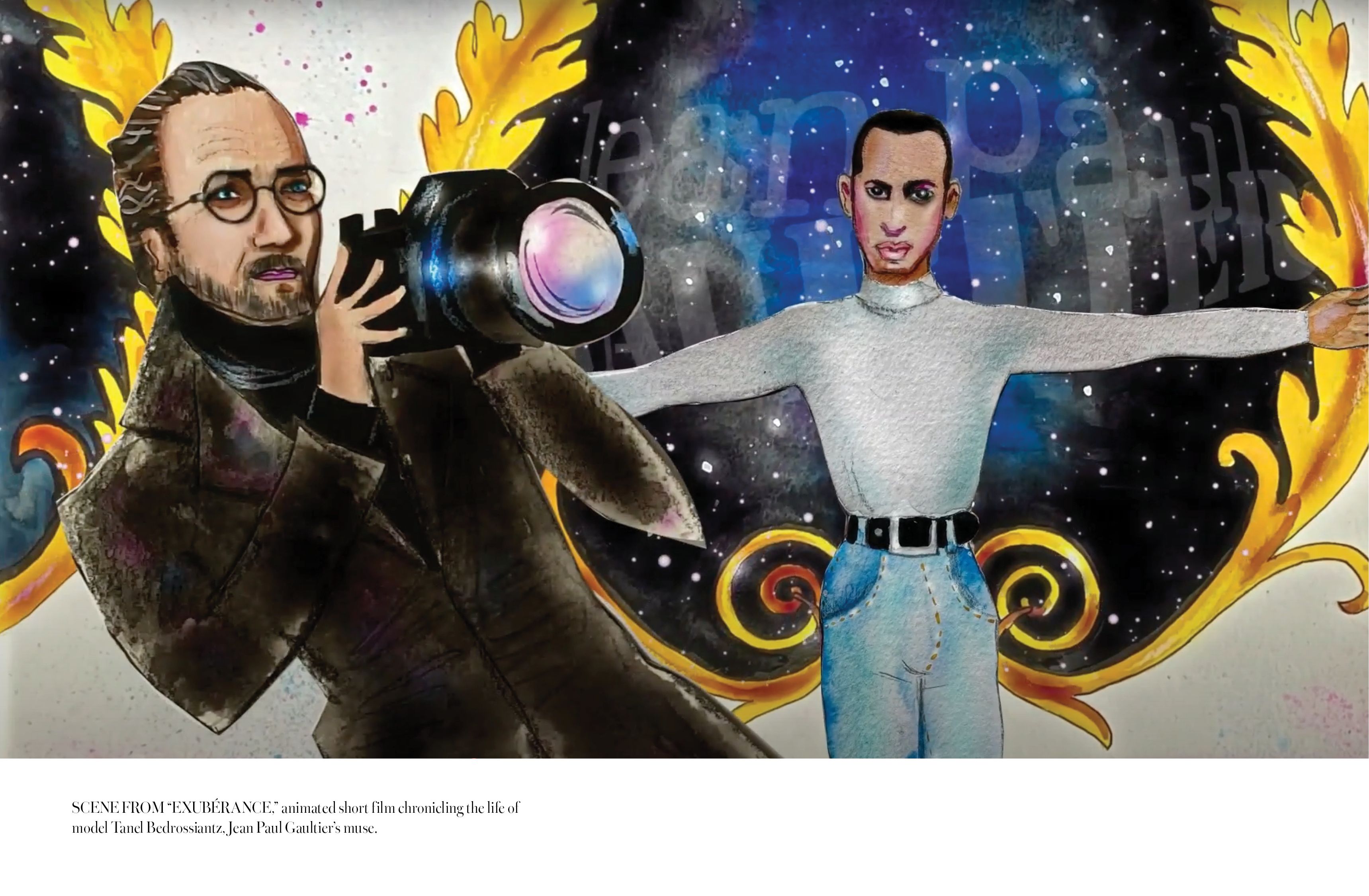
When asked what others should be collecting now, his answer is characteristically thoughtful: "Pieces with a point of view." It's advice that could apply equally to fashion, art, or life itself—the understanding that true curation requires not just aesthetic appreciation, but cultural consciousness.
Whether through watercolor, couture, or the stage of Yerba Buena Gardens, Antonio Contreras Aviance continues to demonstrate that point of view—vivid, expressive, and always unmistakably his own.
In a city built on reinvention, he represents both continuity and transformation, honoring the past while actively shaping the cultural conversations that will define San Francisco's future.